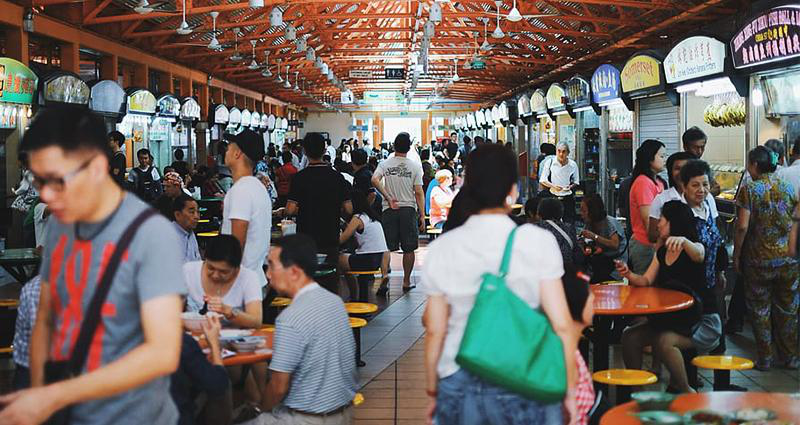The first thing that probably comes to many Singaporeans’ minds when they hear ‘kampung spirit’ is the image of a small tight-knit community of villagers who care for one another like they are family. In fact, that was the reality for many Singaporeans in the 1950s and 60s! There may have been a lot of social issues back then, but with a strong sense of ‘kampung spirit’, Singaporeans were willing to lend a helping hand to anyone in need.
Here, at HappyDot.sg, we believe that the ‘kampung spirit’ is still very much evident – even as our communities grow bigger. Our online surveys have shown that 79% of Singaporeans have donated to various causes in the past 12 months and 7 out of 10 Singaporeans are more likely to donate to vulnerable groups (based on 1000 people surveyed in November 2019). Essentially, having ‘kampung spirit’ can be viewed as Singapore’s way of ensuring a social safety net for the less fortunate here.
What Is A Social Safety Net?
Imagine a circus artist walking across a tightrope. While they might be very careful, there is still a safety net below the tightrope to catch them in case they fall. That way, they can still get back up on the rope with relative ease. A social safety net (SSN) functions in a very similar way. It is a very broad term that encompasses a wide range of public policies and community initiatives that aim to help people in disadvantaged situations get back on the rope.

SSNs can be split into 2 categories: formal and informal. Formal SSNs commonly refer to government welfare policies that legally guarantee economic and social support for people. A good example would be something like the ComCare Fund that provides financial assistance for needy families and their children to meet their basic needs.
Informal SSNs, on the other hand, usually refer to people helping one another out. They may be volunteer organisations, social enterprises, and even family members. In other words, they can be identified as people who have ‘kampung spirit’. If you happen to live in a multi-generational household, you are actually engaging in an informal SSN!
How Do They Benefit Singaporeans?
Social safety nets often help to address the current social issues of each generation. Consider Singapore after independence, some of the issues included much of the population living in poverty, low education levels, and high unemployment numbers. As a result, SSNs, both formal and informal, were concerned with resolving these problems. These efforts have paid off tremendously as Singapore now has one of the most educated populations in the world!
What about important social issues right now? It may come as no surprise to many of you that the COVID-19 global pandemic has caused quite a few social issues to emerge in Singapore. Two of them being the economic impact on businesses and low-income families and the health impact on those who contracted the virus. Thankfully, Singaporeans from all walks of life have come together to start various community initiatives to help many disadvantaged groups. It is heartening to see such a strong presence of ‘kampung spirit’ in uncertain times like this.
As the saying goes, ‘no man is an island.’ This means that, while it is good to be self-sufficient, there will be times when we would need each other’s help and we should not be afraid to ask. The Government can enact policies to help the less fortunate, but a mark of a truly caring society is one where the citizens are willing to help each other to ensure that everyone can enjoy a good standard of living.

Looking to do online surveys about social issues in Singapore? Join our HappyDot.sg community today and take part in various surveys and quick polls!
